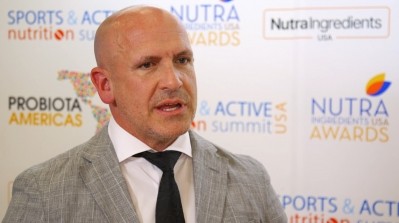Experts advocate for new quality control position within C-suite

During a webinar hosted last week by the United Natural Products Alliance (UNPA), Loren Israelsen, UNPA's president, said the association advocates for a Chief Quality Officer (CQO) within company C-suites who would be tasked as the internal and external point of contact to resolve issues such as inspections gone bad or challenges to a company’s brand integrity.
"Every time the FDA goes through an inspection… year by year, they tend to get more granular," Israelsen said. "And I hear from so many clients, ‘Hey, the FDA's been here X number of times and never had a problem. And all of a sudden there's a problem. And we've never had an observation. And now we have a 10-page observation.’ And that's because they're digging deeper.”
Beyond inspections and the quality control department, Israelsen said a CQO is needed, which he referred to as the "brakes and GPS of the company". He added that a CQO will also help make informed and disciplined decisions by balancing ROI and commitment to quality.
The CQO may be a foreign concept to the supplement industry, but it is not a new idea. The role is becoming more common within the health care and pharmaceutical sectors. This is in part due to a recognition that the highly technical nature of these industries needed a congruent and integrated process to maintain high quality in hospital and pharma organizations.
“Our industry has parallels to the complex dynamics in health care and pharma that suggest we would benefit from the CQO position,” Israelsen said.
Documentation
A CQO’s role is multifaceted and may include monitoring how a company cites identity, strength, composition and purity that comprise writing specifications for supplements. Marian Boardley, principal at Marian Boardley Consulting, said it is sometimes difficult to separate these terms because of overlap, "however, that’s what the FDA wants us to do when we write our specifications. They want to see specification for each of those four things."
The CQO could also monitor documentation for specifications, including the exemption of specifications from testing.
"So, if your position is that there's no scientifically valid method, then you're going to have to provide documentation that tells FDA, or whoever's looking at your specifications, that you can't test this and why you can't test it," Boardley said.
Testing also extends to the final product. James Kababick, director at Flora Research Laboratories, said the FDA cannot mandate the "scientifically impossible", but it can require companies to spend money on R&D and method development to test a finished product.
"When R&D or know-how indicates that finished dosage product testing of an ingredient is not possible, you need to document this and marry and address that as well," Kababick said. "You have to document what was done and how you tried. And if you didn't try, why you didn't bother."
Hotline
The CQO may be aided by a hotline UNPA is proposing, a tool for companies under "great duress during inspections" when the FDA investigator and the company do not agree on good manufacturing practices (GMP) compliance, Israelsen said.
"Often, both sides believe they are correct, but the FDA holds the high cards, the power to cite companies in a 483 with the risk of a follow up Warning Letter," he said. "This is where we see a 'hotline' as a critical resource for the company to be able to reach a team of highly experienced people who can advise the company in real time."
The experienced persons include outside labs, GMP specialists and consultants, former FDA investigators, industry lawyers, third-party certifiers, and those with highly specific ingredient and process expertise.
"UNPA’s view is that we have abundant data to suggest that the same problems are popping up in many inspections and the same arguments arise over specifications, written procedures and several other frequently cited violations," Israelsen said.
FDA responds
The FDA told NutraIngredients-USA it is not applying more stringent guidelines during facility inspections. An Agency spokesperson said that during the initial years after establishing the dietary supplement good manufacturing practices (GMP) regulations, inspections were focused on ensuring firms understood the basics of a GMP system.
"But in the 15+ years since the GMP rule was established, it is expected that firms have enhanced their GMP compliance and subsequent inspections are able to be more focused to ensure products continue to be manufactured in compliance with the requirements," the spokesperson said.







